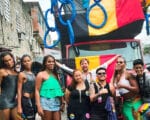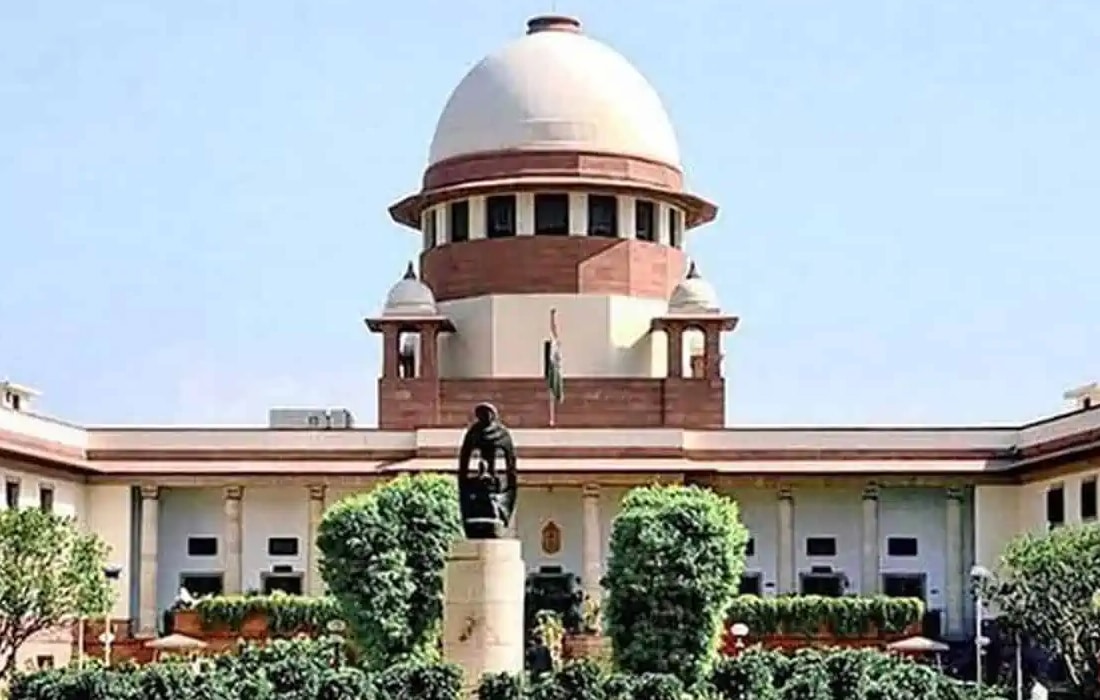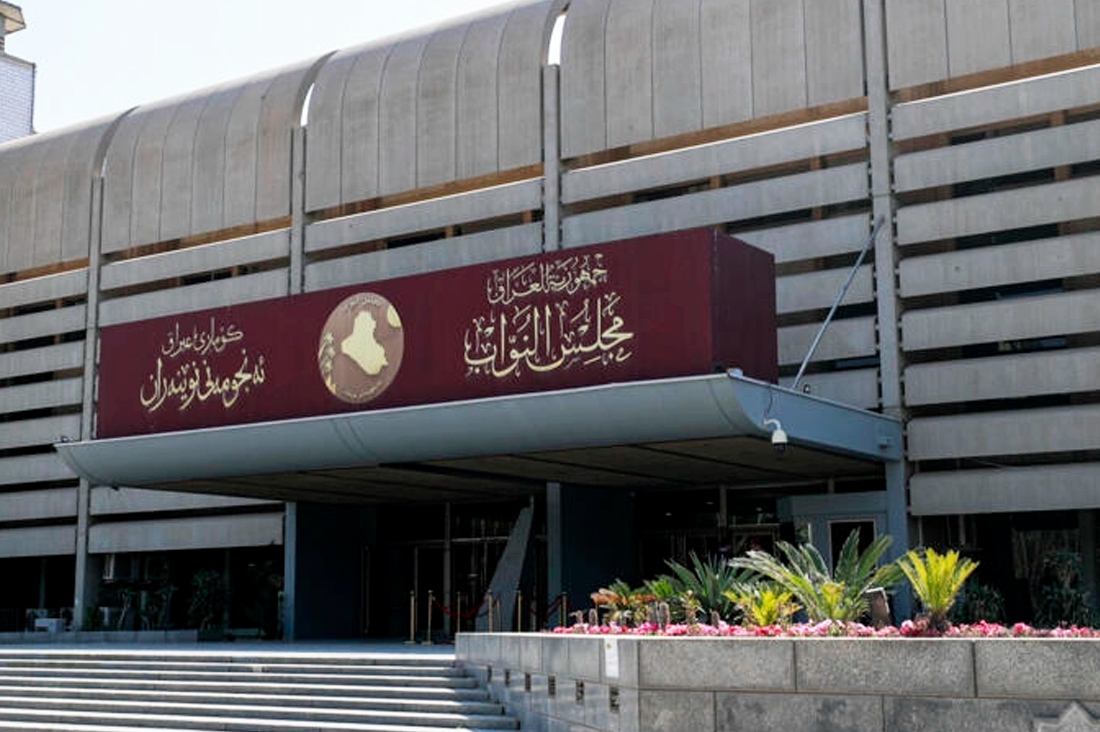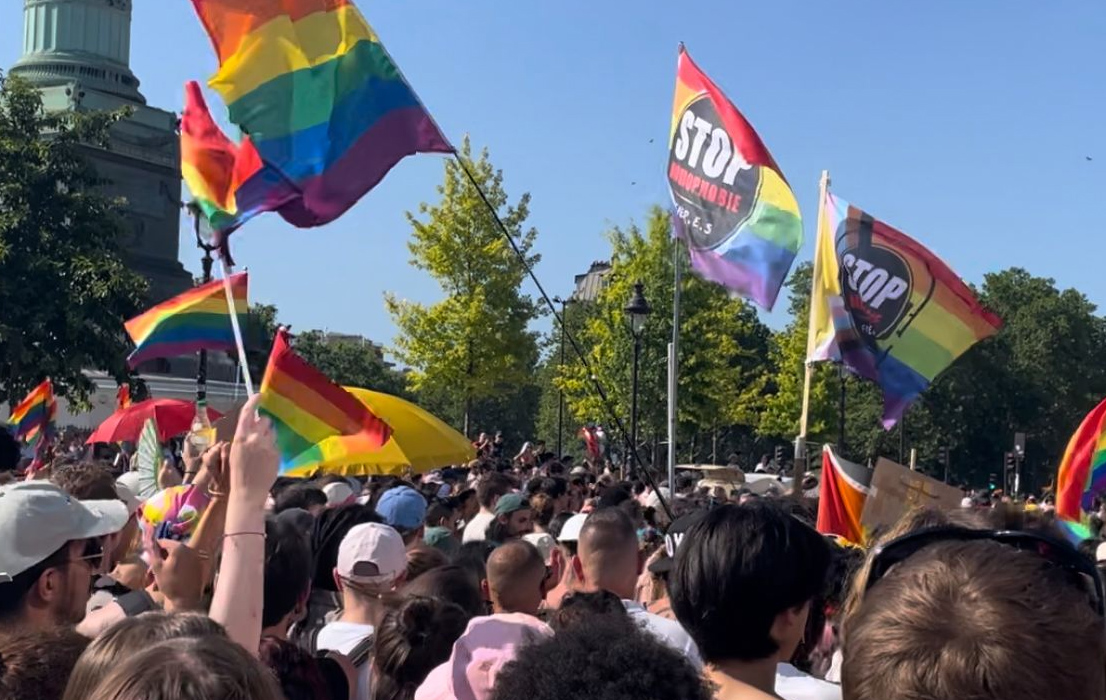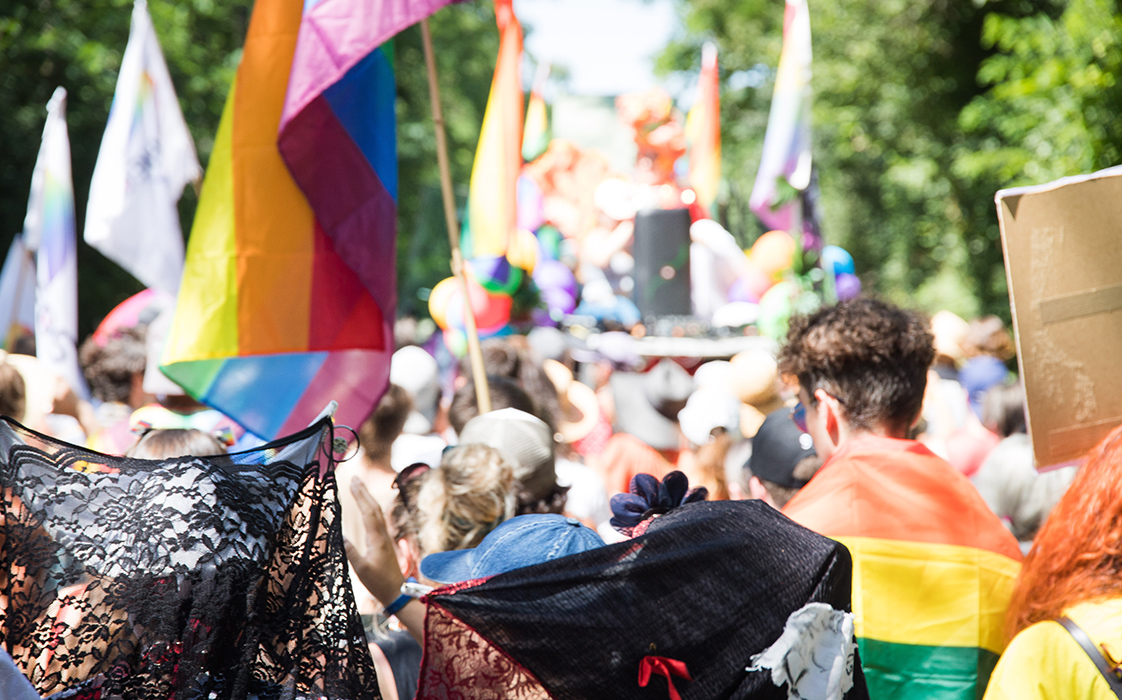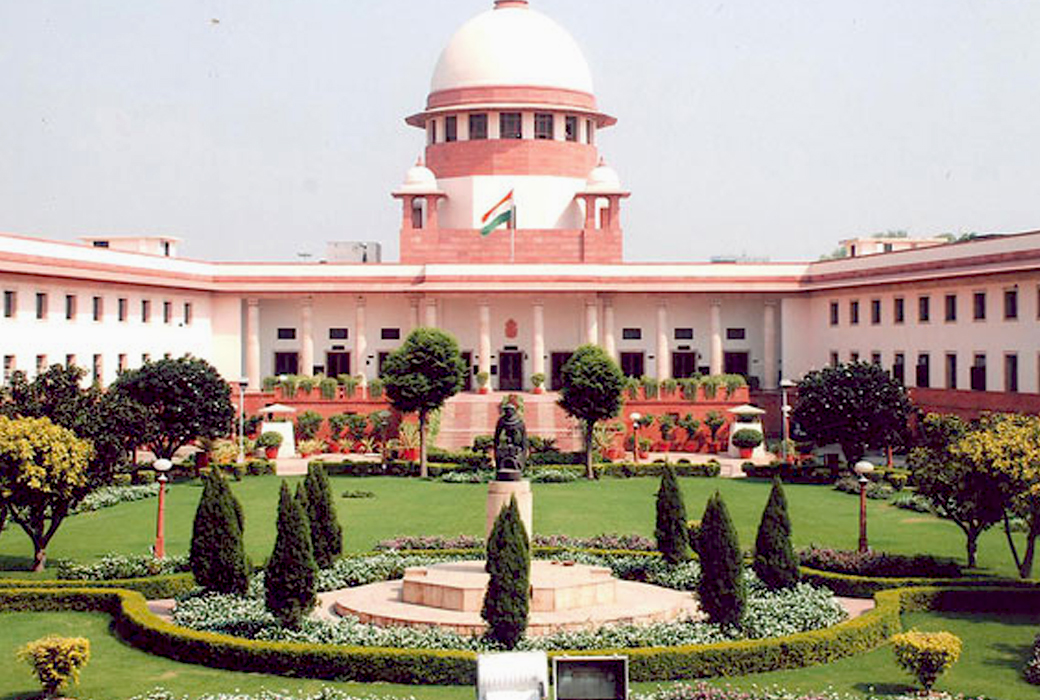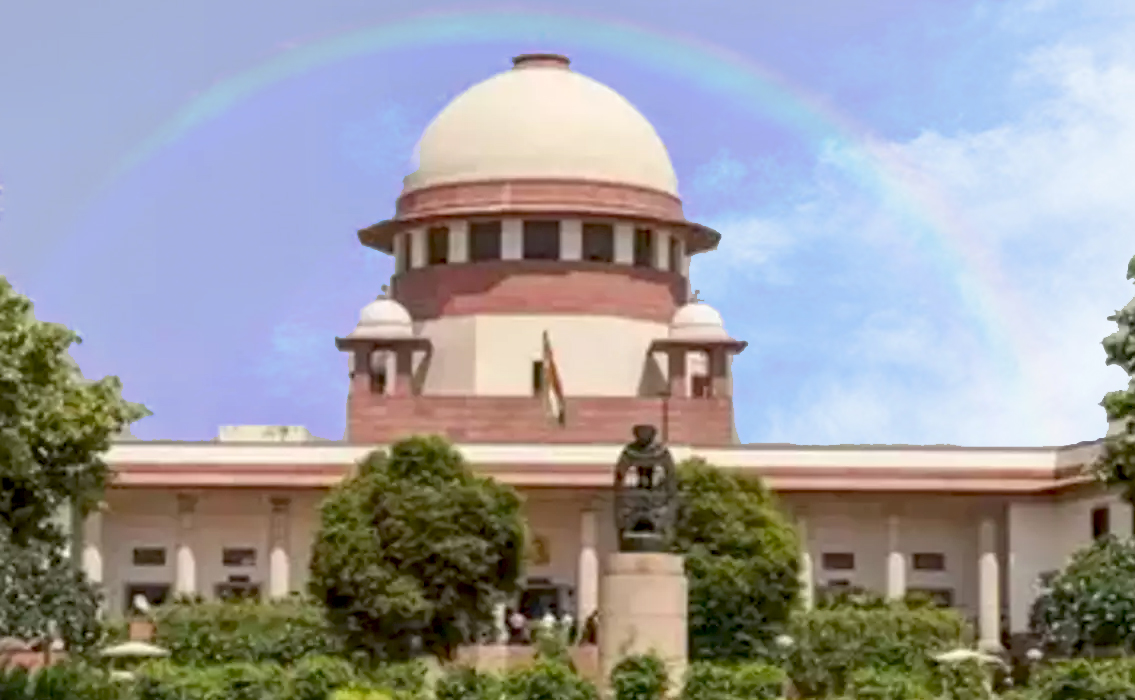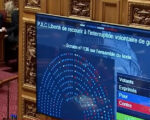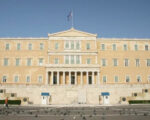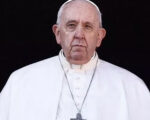>> Hundreds march in New Delhi for gay pride in Modi’s India
L’un des organisateurs, Shiv Sahu, a expliqué que les manifestants protestaient contre la décision de la Cour suprême qui avait cassé en décembre 2013 un arrêt pris par un tribunal de New Delhi en 2009 qui dépénalisait les relations homosexuelles.
«Il y a beaucoup de frustrations, mais nous n’allons pas retourner en arrière et cacher» notre homosexualité, a ajouté Sahu, 37 ans, qui portait un turban arc-en-ciel. Selon lui, plusieurs membres de la communauté homosexuelle ont déposé des recours auprès de la Cour suprême demandant l’annulation de la décision maintenant les dispositions du code pénal de 1860 qui criminalise les relations sexuelles. Des marches homosexuelles ont déjà été organisées à Bombay et à Bangalore depuis décembre 2013.
 La Cour suprême avait estimé que la modification de la loi relevait de la responsabilité du Parlement qui devait légiférer à ce sujet, et non de la justice. Les relations sexuelles entre homosexuels avait été dépénalisées en 2009 lorsque la Haute cour de New Delhi avait estimé que l’article du code pénal criminalisant ces relations constituait une violation des droits fondamentaux garantis par la Constitution.
La Cour suprême avait estimé que la modification de la loi relevait de la responsabilité du Parlement qui devait légiférer à ce sujet, et non de la justice. Les relations sexuelles entre homosexuels avait été dépénalisées en 2009 lorsque la Haute cour de New Delhi avait estimé que l’article du code pénal criminalisant ces relations constituait une violation des droits fondamentaux garantis par la Constitution.
Anjali Gopalan, fondateur de l’organisation de prévention du Sida Naz Foundation, a souligné que ces décisions de justice contradictoires avaient accru le sentiment d’insécurité et de vulnérabilité au sein de la communauté homosexuelle. «Ces décisions de justice ont littéralement contraint les gens à de nouveau se cacher après avoir fait leur coming out», a déploré Gopalan.
Les organisations nationalistes hindoues ont notamment stigmatisé les couples homosexuels, affirmant notamment que ces relations étaient pathologiques et qu’ils s’agissait d’une importation culturelle occidentale.
Reportage : Homosexualité en Inde… le débat fait rage avant la gay pride
>> Hundreds of people danced, sang and cheered in a gay pride parade in New Delhi on Sunday, the first since the country’s top court reinstated a ban on gay sex in the world’s largest democracy.
Multi-coloured balloons, masquerade masks and wigs, a huge rainbow flag and a St. Bernard dog ushered in the seventh Delhi Queer Pride parade, with many shaking their hips to drum beats.
Participants chanting “Azaadi” (freedom) and shouting slogans such as “I’m gay, that’s OK” carried banners and placards demanding their right to love.
“We are making a statement that we exist. We are not a minuscule minority. Deal with it,” said Mohnish Kabir Malhotra, 27, a publicist and one of the organisers of this year’s event.
In December, India’s Supreme Court threw out a 2009 ruling by a lower court that had decriminalized gay sex, saying only parliament could repeal Section 377 of India’s penal code which bans sex against the order of nature.
The British colonial-era law is widely interpreted to mean homosexual sex, and can be punished with up to 10 years in jail. Many choose to hide their sexuality for fear of discrimination.
Some participants said they had little faith that Prime Minister Narendra Modi’s government would revoke Section 377, despite having a majority in the lower house of parliament.
MORE CONSERVATIVE
Modi’s ruling Bharatiya Janata Party is a right-wing nationalist outfit perceived to be more conservative than the previous Congress-led government.
Modi has not publicly commented on the issue of homosexuality, although his colleague Rajnath Singh had called gay sex “unnatural” in the wake of the December court ruling. Some BJP politicians such as Arun Jaitley have said that gay sex should be decriminalized.
A poster at the parade depicted Modi’s face filled in with the colours of the rainbow, the symbol of the gay rights movement, and the caption “I love Amit Shah”, referring to the president of Modi’s political party.
Some participants said the prime minister did not mean the gay community any harm.
“Modi is a very wise person. I don’t know whether he’ll support or not support, but he’s not going to do anything which is going to harm any Indian citizen’s right,” said Rudrani Chettri, 36, a social worker and LGBT activist.
Some of the biggest cheers at the parade were reserved for Dora, a St. Bernard dressed in a T-shirt promoting LGBT rights, brought by her owner, who works at the U.S. embassy.
The parade brought traffic to a halt in central New Delhi, with bemused drivers watching the proceedings from the sidelines.
“As long as it’s consensual, it should not matter to anyone. They shouldn’t force themselves on anyone,” said Kapil Yadav, an auto-rickshaw driver who was among passers-by and commuters who stopped to watch the procession.
AFP




